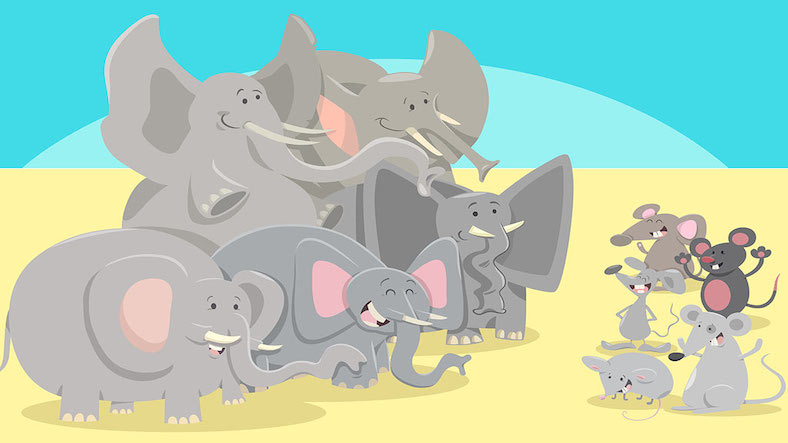Once upon a time, in a dense and ancient forest, there lived a mighty elephant herd. The elephants, known for their strength and wisdom, were led by a wise and noble elephant named Arjun. Arjun was not only respected by his fellow elephants but also by the other animals in the forest.
In the heart of the forest, there existed a community of mice ruled by their wise and just king, named Mahendra. The mice, though small in size, were known for their unity and cooperation.
One day, a misunderstanding arose between the elephants and the mice. The elephants, while wandering through the forest, unknowingly trampled upon the homes of the mice, causing chaos and destruction.
In response, King Mahendra, without resorting to anger or revenge, decided to speak with Arjun, the leader of the elephants. The wise mouse king believed in finding peaceful resolutions to conflicts.
Arjun, upon hearing the concerns of the mice, felt remorseful for the unintentional harm caused by his herd. He realized that even the mightiest beings must be mindful of their actions.
To make amends, Arjun and his fellow elephants decided to help the mice rebuild their homes. The elephants used their strength to gather materials and together with the mice, they constructed sturdier homes that would withstand the weight of the elephants.
Grateful for the cooperation and understanding, King Mahendra invited Arjun and the elephants to a grand feast. The once-estranged communities now celebrated their newfound friendship and pledged to live harmoniously in the vast forest.
The moral of the story is that conflicts can be resolved through understanding, cooperation and a willingness to make amends. It emphasizes the importance of humility, empathy and peaceful communication in fostering harmony among individuals and communities, regardless of their differences in size or strength.
Thanks for reading the article, for more quick reads read our peoples blog articles.












